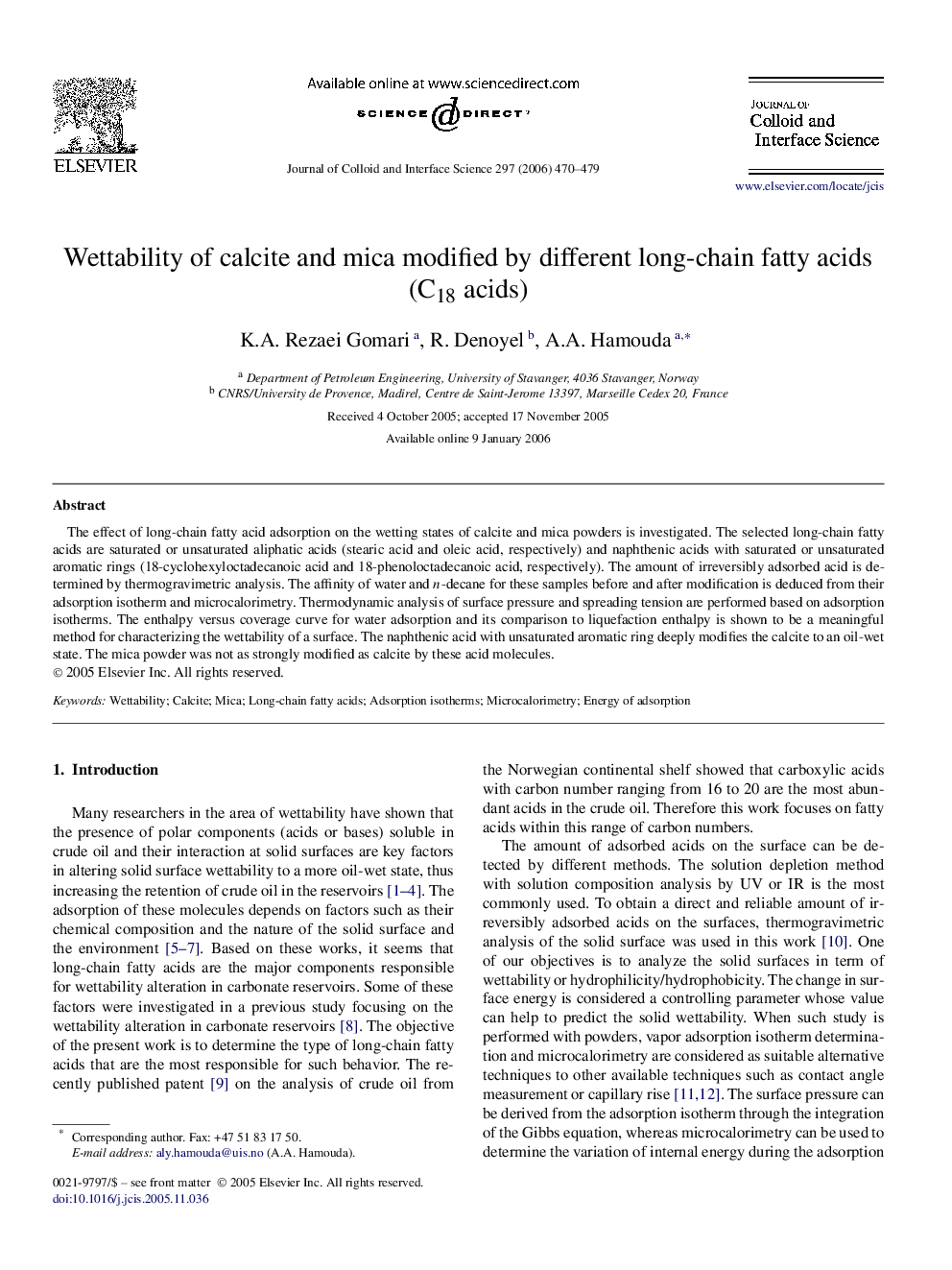| Article ID | Journal | Published Year | Pages | File Type |
|---|---|---|---|---|
| 613214 | Journal of Colloid and Interface Science | 2006 | 10 Pages |
The effect of long-chain fatty acid adsorption on the wetting states of calcite and mica powders is investigated. The selected long-chain fatty acids are saturated or unsaturated aliphatic acids (stearic acid and oleic acid, respectively) and naphthenic acids with saturated or unsaturated aromatic rings (18-cyclohexyloctadecanoic acid and 18-phenoloctadecanoic acid, respectively). The amount of irreversibly adsorbed acid is determined by thermogravimetric analysis. The affinity of water and n-decane for these samples before and after modification is deduced from their adsorption isotherm and microcalorimetry. Thermodynamic analysis of surface pressure and spreading tension are performed based on adsorption isotherms. The enthalpy versus coverage curve for water adsorption and its comparison to liquefaction enthalpy is shown to be a meaningful method for characterizing the wettability of a surface. The naphthenic acid with unsaturated aromatic ring deeply modifies the calcite to an oil-wet state. The mica powder was not as strongly modified as calcite by these acid molecules.
Graphical abstractCharacterization of a surface in terms of hydrophilicity/hydrophobicity determined by water vapor adsorption isothermFigure optionsDownload full-size imageDownload as PowerPoint slide
